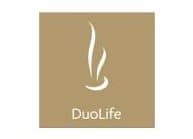
7 Natural Sweeteners That Are Not Erythritol
Recently, there has been news about a study suggesting that erythritol, a sugar alcohol alternative sweetener, might increase the risk of blood clots and is linked to cardiovascular events like heart attacks and strokes. This information raises concerns about whether to completely avoid the product, use it in moderation, or question the validity of the study.
This article aims to clarify erythritol—its advantages, disadvantages, and how it functions—and provides natural sweetener alternatives. If you have concerns about heart health, it’s advisable to consult with your doctor directly. For personalized nutrition advice, consider working with a registered dietitian for the latest evidence-based information.
Erythritol is a sugar alcohol commonly found in calorie-reduced products like baked goods and candy. Marketed to people with diabetes due to its lower sugar content, it provides minimal caloric value compared to regular table sugar. While it is not inherently dangerous, a recent study suggests a potential increase in blood clot formation, particularly risky for those with pre-existing heart conditions.
Unlike other sugar alcohols that may impact gut health, erythritol is absorbed into the bloodstream before reaching the colon, reducing the likelihood of digestive issues. Despite its presence in foods like watermelon, grapes, pears, and mushrooms, avoiding these foods is unnecessary unless there is an allergy.

Concerns arise from the tendency of individuals to consume large amounts of erythritol when used as a sugar substitute. Research indicates that when erythritol is used as a sweetener, the levels can be over 1,000 times greater than those naturally found in foods.
Considering alternatives to erythritol, it’s crucial to read nutritional labels to ensure its absence. Some natural sweetener options include:
- Stevia: Extracted from the Stevia rebaudiana plant, it is sweet with minimal calories and widely used in baking, coffee, and tea.
- Coconut Sugar: Derived from the sap of coconut palm trees, it has a caramel-like flavor and can substitute for granulated sugar.
- Monk Fruit: Extracted from the monk fruit, it is significantly sweeter than sugar and has zero calories, often combined with erythritol.
- Maple Syrup: Collected from maple trees, it has a rich flavor and various uses beyond breakfast.
- Agave: Derived from the agave plant, it is sweeter than sugar and used in syrup form or added to baked goods.
- Dates: Used as sweeteners in various forms, including paste, whole fruit, and syrup, with a rich, caramel-like flavor.
- Allulose: A low-calorie sweetener naturally occurring in some fruits or produced commercially.
While more research is needed on erythritol’s safety, especially for those with heart conditions, exploring natural sweetener alternatives offers diverse options for various purposes. Note that not all alternatives are calorie-free or low in carbohydrates, so checking ingredient lists is essential for those monitoring sugar intake.
Related
Trackbacks and pingbacks
No trackback or pingback available for this article.






Leave a reply